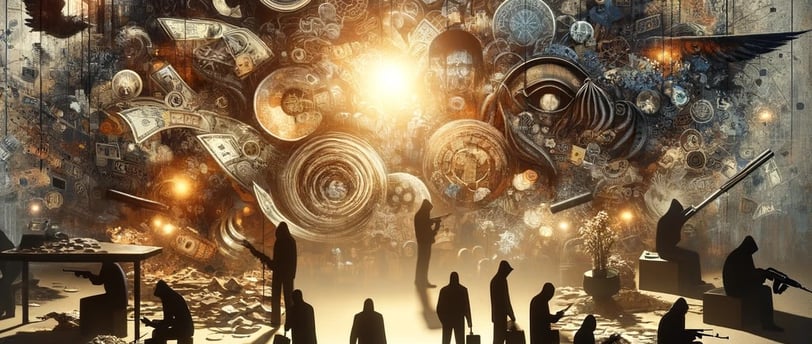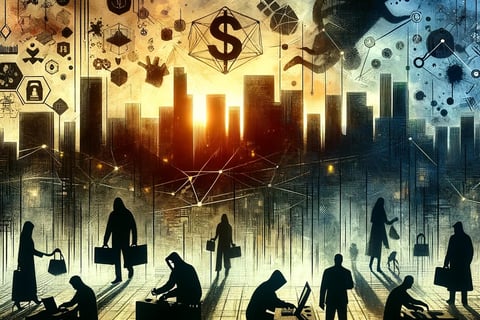The Secret Power of North Korea
A Nation's Illicit Economy
NEWSSTORIES


When pondering who the world's most powerful drug lord might be, names like El Chapo Guzman or Pablo Escobar typically surface. However, some American agencies point to a more unexpected figure: Kim Jong-un, the leader of North Korea. This analysis delves into the secretive economy of North Korea, revealing its unorthodox methods of sustaining its regime.
North Korea: A Global Anomaly
North Korea, officially known as the Democratic People’s Republic of Korea, is a unique state on the global stage. With a population of nearly 26 million and a GDP estimated at around 28 billion dollars, its economy remains shrouded in mystery, largely due to the nation's extreme isolationism. This hermit kingdom, born out of the post-World War II division of Korea and the subsequent Korean War, has developed in stark contrast to its southern neighbor, South Korea.
The Rise of Illicit Activities
In the wake of reduced Soviet support in the 1970s, North Korea faced an economic crisis, leading to the birth of Room 39, a government office dedicated to managing illegal activities abroad. This clandestine operation, suspected to be located near the Kim family's official residence, oversees a range of criminal enterprises, from drug production to counterfeit currency, to sustain the government's coffers.
The Diplomatic Shield
North Korea ingeniously employs its diplomatic personnel to transport and sell illegal goods, leveraging their immunity to evade international scrutiny. This strategy has allowed the regime to effectively and covertly distribute products like narcotics and counterfeit items globally, especially targeting China as a primary market.
The Diverse Criminal Portfolio
The North Korean government is heavily involved in producing and distributing heavy drugs like opium, cocaine, heroin, and methamphetamine. Unlike other criminal organizations that must dodge state authorities, North Korea's state-sponsored nature gives it an unmatched edge in the drug trade. This narco-state, according to defectors, strictly prohibits domestic consumption, focusing solely on international distribution.
The Lucrative World of Counterfeiting and Smuggling
Aside from drugs, North Korea has ventured into counterfeiting cigarettes and U.S. currency, particularly the $100 bill. These operations are so sophisticated that they are almost impossible to detect, contributing significantly to the regime's illicit income. Additionally, the regime is suspected of engaging in wildlife trafficking, further diversifying its criminal activities.
The Shadow Economy's Role in Governance
Estimates suggest that North Korea's criminal ventures generate up to a billion dollars annually. This staggering sum is not just for the elite’s enrichment but also finances the country's military ambitions, including its nuclear program. The regime's reliance on these activities has escalated under Kim Jong-un's rule, with increased investment in weapons of mass destruction.
International Response and Sanctions
Despite extensive sanctions from the U.S., the UN, and the EU, aimed at curtailing North Korea's illicit activities and luxury imports for its elite, the regime has continued its operations unabated. Sanctions have seemingly failed to impact the elite's lifestyle or hinder the financing of its military and nuclear programs.
Challenges in Combating North Korea's Criminal Sovereignty
The unique structure of North Korea's government, actively directing national criminal activity as an economic strategy, presents a significant challenge for international law enforcement. The regime's diplomatic immunity, secretive nature, and internal lockdown make monitoring and countering its illicit activities incredibly difficult. Traditional tools for combating organized crime are ineffective against this state-sponsored model.
North Korea’s criminal sovereignty represents a complex challenge on the global stage. Its evolution under Kim Jong-un suggests that these activities are unlikely to cease and may even take new forms in the future. Understanding and addressing North Korea's behavior requires a nuanced approach, one that acknowledges its unconventional status as a criminal state. The international community must find innovative strategies to evaluate and challenge North Korea's illicit economic activities, ensuring global stability and security.



